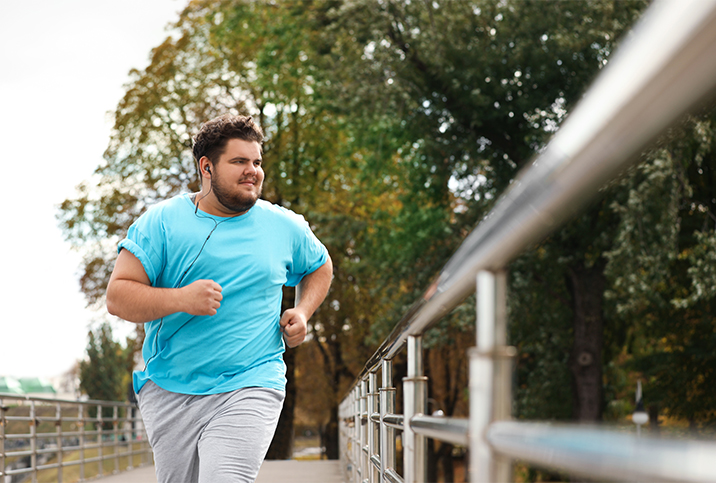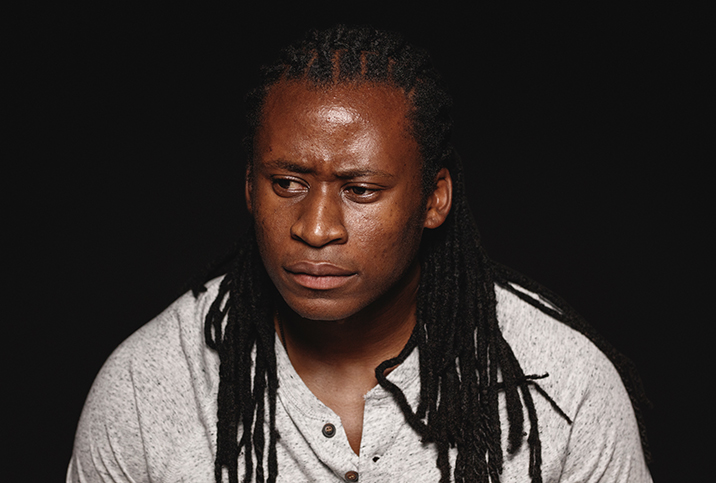What Causes Erectile Dysfunction in Your 20s?

We often consider age a catalyst for many changes in how a man's body works and appears.
Prostate issues, slower metabolism, gray hair, fading eyesight—and occasional erectile dysfunction (ED)—are all expected as we move from the bloom of youth into middle age and beyond. However, researchers and urologists indicate more young men are reporting ED, even during prime reproductive years.
What are some potential causes of frequent erectile dysfunction in your 20s? More importantly, what can you do about it?
More common than it used to be
The first point in any ED discussion is to remind guys you're not alone. Feelings of emasculation and helplessness can lead to the sense that you're the only person in the world experiencing ED. Nothing could be further from the truth. Different research shows different results on how common ED is, but overall, it's not rare.
A frequently cited 1994 study called the Massachusetts Male Aging Study reported about 52 percent of men experience some form of ED. One 2019 meta-study suggested the global rate for ED could reach as high as 76 percent. Cleveland Clinic goes so far as to say it's not unusual to have problems achieving or maintaining an erection up to 20 percent of the time.
And it's not just older men who encounter this kind of trouble. A study published in the Journal of Sexual Medicine reported 26 percent of guys age 40 or younger are affected by ED, and even that number may be underreported, especially considering the private nature of the problem. The societal implications regarding notions of masculinity and sexual prowess—especially for younger guys—can lead to underreporting.
"It's something I see very frequently in my practice: young guys in their 20s and 30s with pretty significant ED issues," said Neel Parekh, M.D., a men's reproductive health specialist affiliated with Cleveland Clinic. "There's a whole host of issues that can lead to it."
The causes of erectile dysfunction in your 20s
Some of the reasons younger men experience erectile dysfunction overlap with those for older men, but typically they have to do with lifestyle and diet, which can be controlled and modified.
Alcohol
Spending too much space talking about one-off ED problems like "whiskey dick" is hardly worth the effort, except to say there's no hard-and-fast rule for how much booze is too much. It's up to you to figure out how it affects you.
"At the end of the day, we just need to pay attention to our bodies," said Amy Pearlman, M.D., who directs men's health at the Carver College of Medicine at University of Iowa Health Care. "We want someone to tell us what we want to hear, but our bodies are telling us. So if we drink two glasses of wine and find that we can't perform, then that's too much for us."
Smoking
While you're out testing your limits for alcohol and your ability to perform sexually, keep in mind that smoking has a direct effect on erectile function, too.
The adverse effect is not just from cigarettes, either. The nicotine in vapes can affect your ability to get an erection. One 2008 study published in the Journal of Sexual Medicine suggested that even chewing nicotine gum caused a 23 percent drop in physiological sexual response.
Psychogenic issues
It's often the big head and not the little one at the root of erection difficulties. That is to say, a perfectly normal night or two of erectile problems can cause long-term effects if it leads to anxiety about the ability to perform.
"They may have had one off night, and it's kind of a vicious cycle where it's in the back of their mind that they're not going to be able to perform, so they continue to have issues in their other sexual encounters," Parekh said. "The most common cause of ED by far is what we call psychogenic, or has a psychological component."
The first step in overcoming the psychological causes of ED is counseling. Just talking with a doctor about the issue and hearing how common it is helps a lot of guys. Counseling with a sex therapist specifically is another option.
Parekh often recommends a temporary boost from ED medications as well.
"I'm trying to get their confidence back, so I'll prescribe a low-dose, 5 milligrams tadalafil [Cialis] daily," Parekh said. "The medication's not going to give you an erection just by taking it, but once they start taking it, they typically start waking up more with erections, and erections that are firmer for intercourse. Almost all the guys say they start getting their confidence back and after a few months no longer need to take the medication."
Obesity
Obesity is a growing problem among young people and it brings a whole raft of health problems that affect erectile function. About 35 percent of U.S. men ages 20 to 39 are obese, according to the Centers for Disease Control and Prevention (CDC).
"Morbid obesity is another epidemic that affects blood pressure and cholesterol, and all those things affect the vascularity to the penis," Parekh explained. "You can be 10 years old and obesity can have an effect on your health in your 20s."
Research suggests that changing your diet can help you lose weight and positively impact your erections. A cohort study of 21,000 men indicated that reducing red meat intake and sticking to a Mediterranean diet reduced the occurrence of ED.
Medication
It's relatively well known that antidepressant SSRIs such as Zoloft, Prozac and Paxil can have a detrimental effect on sexual function in men. If you don't tell your doctor about the issue, though, they can't prescribe you alternative meds that are less likely to have side effects of sexual dysfunction.
"A lot of patients are on psych medication even in their 20s," Parekh said. "Depression and suicide are higher than it's ever been before, so a lot of patients are on SSRIs in their teens and 20s, and that can have an effect as well."
Get help
The world is coming around to viewing ED as simply another medical issue, not an embarrassment or an indictment of an individual's manhood. With the huge arsenal of treatment options available, there's no reason not to get help.
Reaching out to a healthcare professional for medical advice is the first step. Making some lifestyle changes might be the second.
If lifestyle changes improve your overall health but erectile dysfunction persists, even intermittently, a wearable device free of the side effects of medication may help restore sexual function. Eddie® is an FDA-registered Class II medical device designed to treat erectile dysfunction and improve male sexual performance. In 2021 clinical trials, Eddie proved effective in treating men with physically, psychologically and pharmacologically induced ED. Of the study participants, 95 percent of men who used Eddie reported a beneficial effect on their sex lives. "The sooner you catch these issues, the less detrimental the long-term effects will be," Parekh said. "Definitely, weight loss can reverse a lot of those issues. You can say the same about the psychological issues: The sooner you get those taken care of, the easier it will be."


















